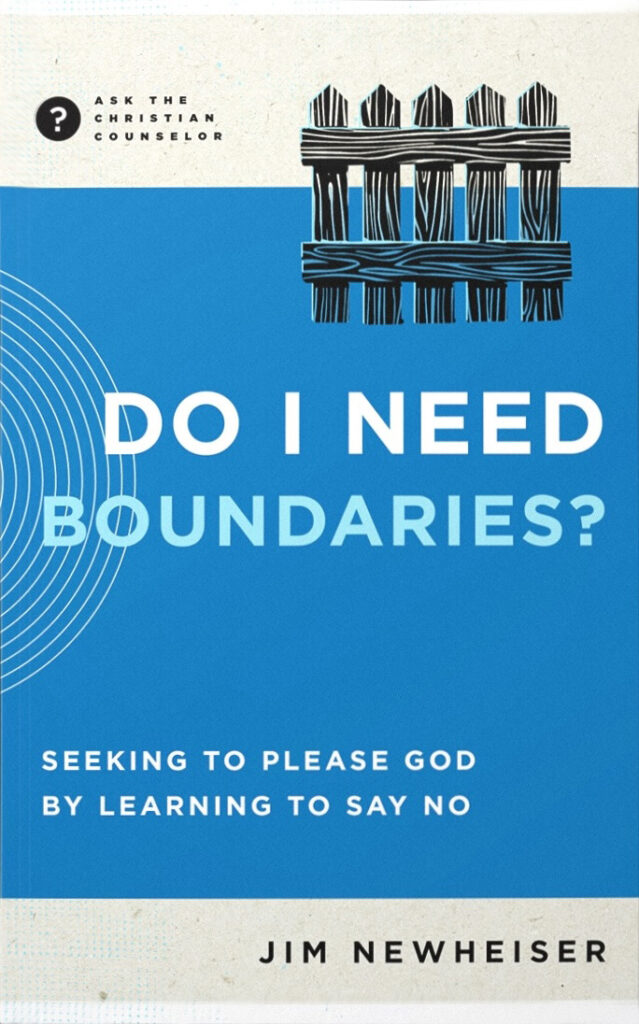The concept of “boundaries” has long been used as a metaphor for setting limits on relationships. There have been a number of bestselling books exploring this concept, often encouraging readers to establish necessary relational boundaries so that they won’t be taken advantage of by others, leading to overcommitment frustration.
In recent years, this concept of relational limits has expanded to include the social phenomenon of cancel culture. This idea has become prominent as some cut off relationships with family members or former friends, not so much because of the demands made upon them, but because their words or beliefs are deemed to be “toxic.” This is often seen when a family member chooses to come out as transgender or homosexual and then insist that all their relatives embrace their new identity, including pronouns. Those who don’t submit are deemed to be toxic and relationships are entirely cut off. Non-compliant family members are told, “You are dead to me.”
This problem with cancel culture, however, is much more widespread than just gender issues. Some are canceled because of their theological or religious views. Abigail Shrier in her book, Bad Therapy: Why the Kids Aren’t Growing Up, expresses concern that an entire generation of young adults are being taught to blame their parents for all their problems and is thus choose total estrangement.
How does God’s Word help us live wisely in relationally strained times like these?
1. Our first priority is to please God
One of my greatest concerns about the way some Christians use the concept of boundaries is that it is almost entirely horizontal while neglecting the vertical. People go from wrongly pleasing people to pleasing themselves while not sufficiently considering what decisions would please God. How might the Lord want us to relate to conflict in relationships or the unreasonable demands of friends, family members, and workmates? These questions probe our hearts and ask us to consider whether we are either avoiding constructive conversation with people we disagree with or whether we are controlled by fear that others will be disappointed in us or dislike us if we say no to them (see Proverbs 29:25; Jeremiah 29:5).
We need a higher motive for setting priorities. Paul in 2 Corinthians 5:9 states, “So whether we are at home or away, we make it our aim to please him.” While there won’t always be a particular verse telling you whether to comply with every demand made by others, carefully consider the question of what God would have you do. This will clarify many situations in life.
2. Our next priority is to love our neighbor.
Some people, when they conclude that others have been taking advantage of them, use the concept of boundaries to set relational limits which are self-focused rather than God-focused. While we should never please others at the expense of pleasing God, there are times when God would have us sacrificially love others. Paul writes, “We who are strong have an obligation to bear with the failings of the weak, and not to please ourselves. Let each of us please his neighbor for his good, to build him up.For Christ did not please himself, but as it is written, ‘The reproaches of those who reproached you fell on me’” (Romans 15:1–3).
Jesus was not self-protective but rather made himself vulnerable as he took on our nature and served us (Philippians 2:5–8). Our Lord came to break down the boundary between us and God and the boundaries between us and other people (Ephesians 2:11–17). We are to deal with one another according to love and grace. Sometimes love will require us to say no for the good of our brother or sister. For example, Paul instructs the church not to give financial support to those who are unwilling to work (2 Thessalonians 3:10–12). But there are other times when we are called to follow Christ by selflessly serving others.
3. Consider your calling
Because we are finite, we can’t meet every expectation which others may place upon us. Because our time is limited, saying yes to one request implies that we are saying no to other possibilities. We must be careful not to be controlled by the loudest or most demanding voices in our lives. Some vocations, including those of pastors, doctors, and entrepreneurs, don’t have clear boundaries, which often leads to neglect of family.
Paul reminds married people that they must make their spouse a priority (1 Corinthians 7:33). We have had to counsel several ministry couples to be much more intentional about planning (Proverbs 21:5) and protecting family time (Proverbs 21:5). In a related example, my wife and I have far more people who want us to counsel them than we have the bandwidth to help. We have had to set limits on the number of cases we can handle according to our understanding of God’s calling upon us during this season of our lives. Sometimes we have to say no.
4. Some boundaries are necessary for safety
Scripture contains many examples of righteous people justifiably fleeing from those who would cause them harm, including David running away from murderous King Saul (1 Samuel 23–27), Paul escaping through the city wall in Damascus (Acts 9:23–25), and Jesus avoiding those who sought to kill Him before his time (John 10:39).
A person who has been severely abused has the right to be safe from their oppressor. We also may be wise to limit interaction with those whose influence might endanger us spiritually (Proverbs 23:20; 1 Corinthians 15:33). A family may appropriately limit contact with relatives whose behavior would be a harmful influence.
5. Pursue peace
In contrast to cancel culture, which leads to unnecessary and extreme estrangements, Paul writes, “If possible, so far as it depends on you, live peaceably with all” (Romans 12:18). As followers of Jesus, we must “strive for peace with everyone” (Hebrews 12:14). We don’t have to react as the world does by canceling those with whom we disagree or even those who hurt us. Proverbs 19:11 reminds us, “Good sense makes one slow to anger, and it is his glory to overlook an offense.”
When we believe it necessary to create some distance from certain relatives in order to keep ourselves and our families safe, we continue to pray for them and perhaps reach out to them with a card, hoping to rebuild relationships over time. If we have been unjustly canceled and shunned, we could reach out in love with a text. Or perhaps we could express our love through someone who still has a relationship with them.
Conclusion. The concept of setting relational boundaries, like many other popular psychological concepts, identifies a real problem faced by many people. The approaches proposed, however, are often man-centered and fall short of biblical teaching. We must not govern our relationships according to pleasing people or selfishly pleasing self. Instead, we must draw our boundaries based upon biblical principles of pleasing God and loving others well.
Do I Need Boundaries?
Counselor Jim Newheiser helps readers learn to use biblical wisdom when setting boundaries within their relationships with family, friends, and coworkers. Using real-life scenarios to teach us how to manage difficult situations, Do I Need Boundaries? highlights how our struggles to set limits in relationships are often due to having the wrong motives and offers a Christ-centered alternative to popular cultural solutions.







